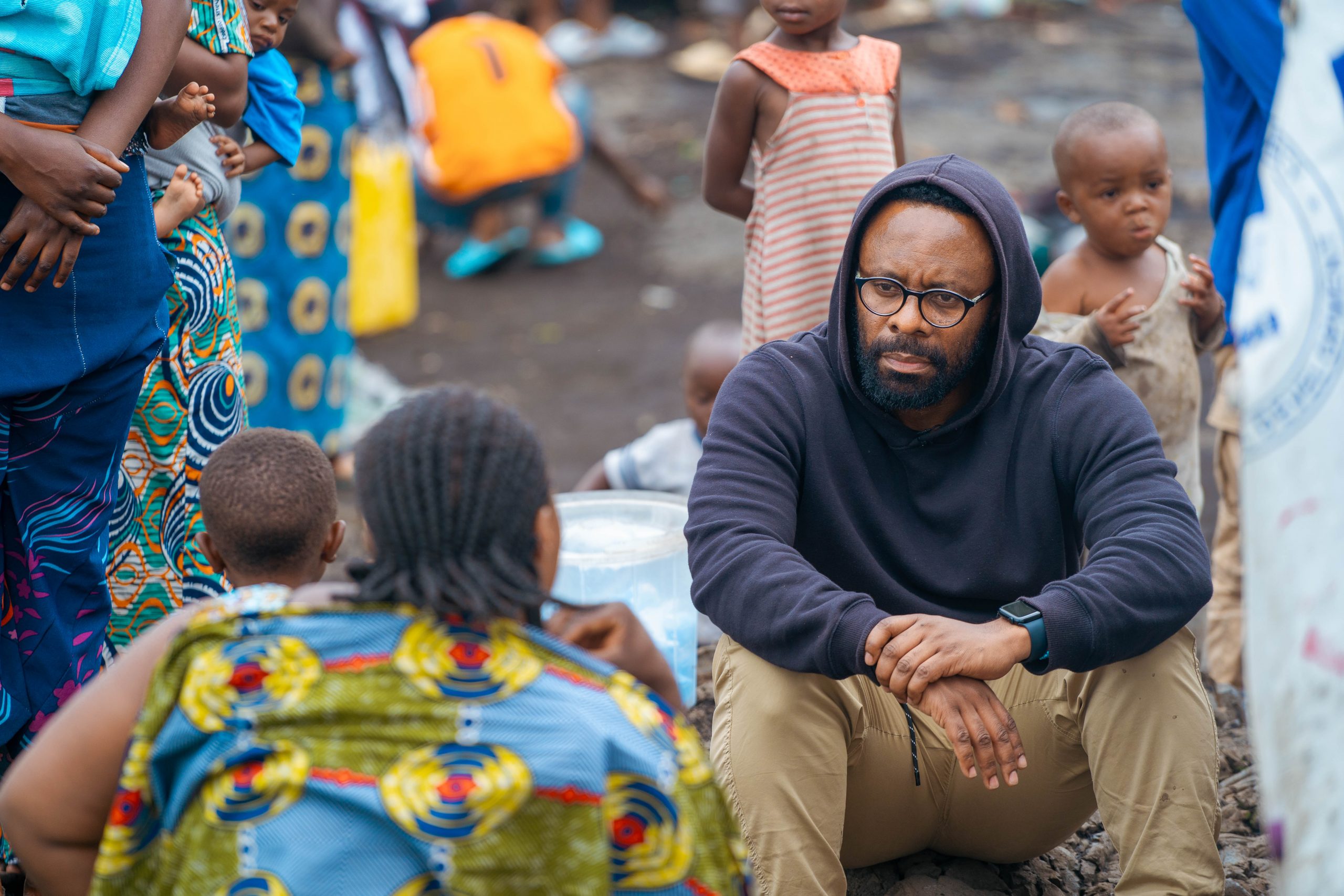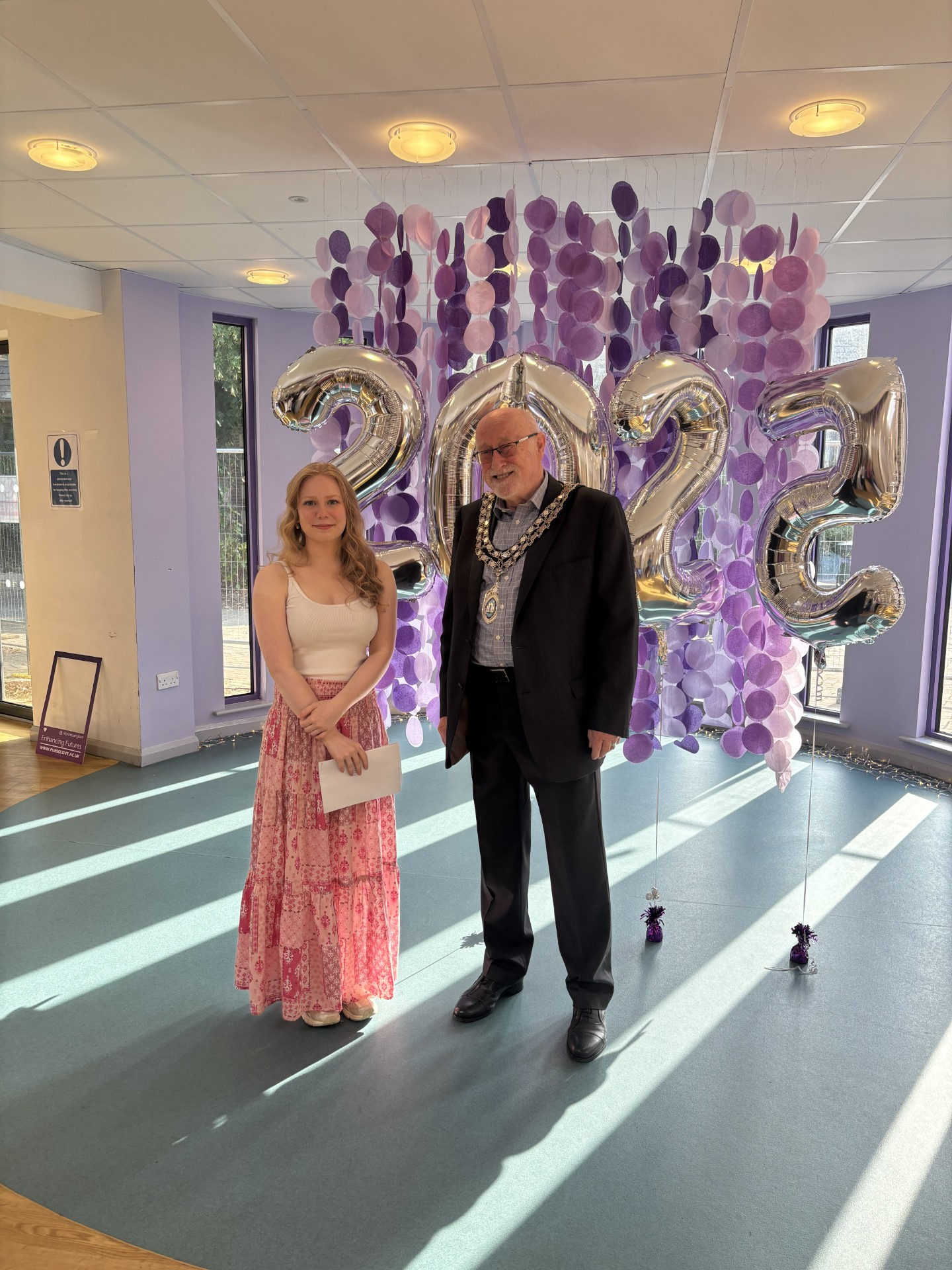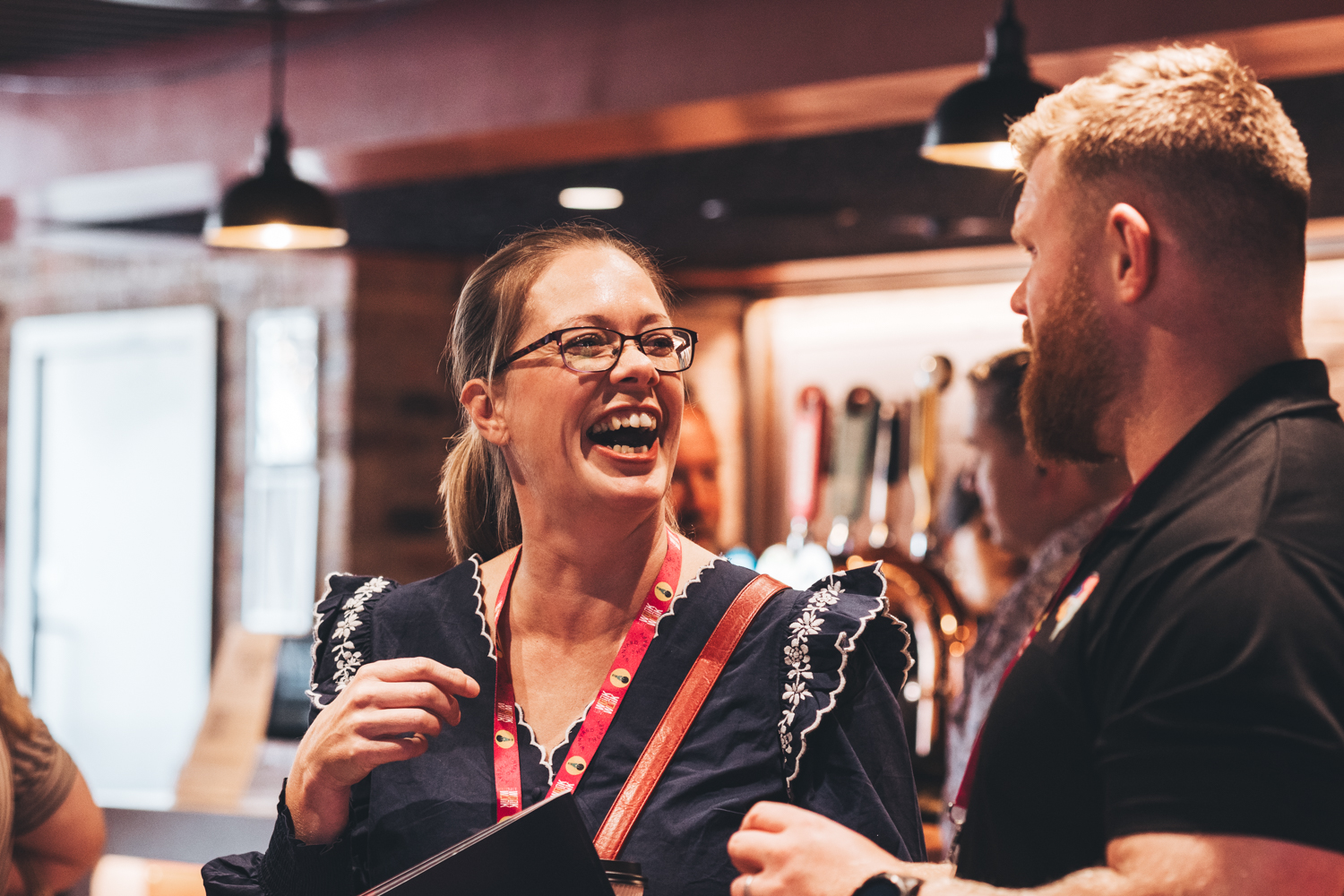

By Sarah Dale

22 January 2025

Elvis Katoto and Junior Masandi met in Teesside through their mutual love of playing football more than 10 years ago. The friends, who also run Black Creatives and Arts in the North-east together, frequently return to their native Democratic Republic of the Congo not only to catch up with family and friends but also with a more serious mission in mind.
Documenting real people’s stories living in displacement camps in the Democratic Republic of the Congo has become Elvis Katoto’s most important journalistic assignment.
The talented journalist uses photography and videography to share the “stories behind the news bulletins” of the forgotten families stuck in camps away from the lives they once knew.
He has met hundreds of men, women and children who are doing all they can to survive in brutal conditions.
In his interviews, he captures an insight into the interviewees’ former lives as business owners and growing up in happy families. There is a flicker of happier times as they recall what they used to grow and sell making an honest living, and their former homes, whilst others have known no other life, having been born into the camps.
When visiting the camps, particularly near Lac Vert, a beautiful setting part of a nature reserve, Elvis says it can feel like he is at a tourist spot at first. If it wasn’t surrounded by makeshift tents – there are 54 camps around Goma with 15,000-20,000 people in the smallest one – it could be a stunning backdrop for a photograph. The reality is very different.
“Millions of people are internally displaced due to violence, with many living in precarious conditions in makeshift camps or host communities,” says Elvis, who lives in Stockton.
“This displacement exacerbates vulnerability and limits access to essential services. I’m just here to tell the stories of Congolese people displaced in their country.”
The men in the camps struggle with their mental health as they try to navigate their difficult daily lives which is hard for Elvis and his team to witness, but it is the stories he hears from the women and children in the camps that break his heart.
“There was one phrase that all the women kept repeating to me,” explains the father-of-three.
“When I asked them what they would most like to change inside the camps, they all said the same thing – for the sound of gunshots to stop. I wondered why they all said the same thing, why they didn’t comment on the lack of food, the conditions, and then one told me the reason why. When the sound of a gunshot is heard in the camps, it is a sign that women are being raped.”
Women and children as young as toddlers are repeatedly raped. They suffer the daily dilemma of leaving the camp or sending their children to collect firewood and water or look for food and risk being gang raped by armed men or starving. Married women who are raped often keep quiet about the assaults they have suffered in case they are beaten or abandoned by their husbands.
 However, there are also beacons of hope within the camps, glimmers of a strong community working together to support each other and snapshots of joy while children play together. A 100-year-old woman, who lived in one of the camps with her grandson, struggled to fetch and carry water and firewood as she tried not to rely solely on her grandson’s help. When others in the camp witnessed her struggles, they stepped in to help and care for the pair despite struggling to provide enough for their own families.
However, there are also beacons of hope within the camps, glimmers of a strong community working together to support each other and snapshots of joy while children play together. A 100-year-old woman, who lived in one of the camps with her grandson, struggled to fetch and carry water and firewood as she tried not to rely solely on her grandson’s help. When others in the camp witnessed her struggles, they stepped in to help and care for the pair despite struggling to provide enough for their own families.
As part of the documentary, Elvis asks each interviewee the same question: ‘What was your life like before?’ He uses this information so he can give back to the communities he visits. He finds out what businesses they once had so he can source supplies and return with them for the produce to be sold on stalls in the camps so they can earn money. This gives individuals a sense of pride and empowers them to make a living again to support their families. With the support of people’s donations he has paid for children’s school fees, provided breakfast in camps for children to ensure they have a meal, and built homes for the community.
“When a child is upset and needs a hug, I’m a father, I will give them a hug,” he says.
“There is a lot of trauma in the camps. People die here every single day, people are sexually assaulted every day, babies are born here every day.
“It can be risky for me and my team; sometimes we have to leave our equipment in the car and we can only connect with people if I’m with the Chief of the camp. We always have a safety briefing before we enter a camp.”
But Elvis says it is worth the risks to document the “real stories” and give these marginalised communities a voice.
“As a filmmaker, we have the incredible power to capture the emotions, struggles and resilience of the people we encounter,” he says.
“Through our lens, we can shed light on the untold stories, amplify their voices and raise awareness about the challenges people face.”
Elvis had to leave Congo in 2000 for his safety as a young journalist documenting the war, which started in 1996. He arrived in London, England by himself aged just 19, where he lived for six years working in retail before moving to the North-east of the country for a short-term journalism internship at a regional radio station. He needed British qualifications to become a professional again, so he went back into education in 2007 at Teesside University and finished his Master’s in 2011. He now works as a freelance journalist and videographer.
Elvis was in talks with Netflix over screening his documentary once it is complete, but it needed support from the United Nations and the Ministry of Defence in DR Congo and unfortunately, the streaming network dropped it recently. Elvis says it is a “struggle to get the mainstream media to tell these stories, the real stories behind the headlines”. He is continuing to work with his team to produce a six-part documentary.

Supporting people in his home country is something that is also very important to Elvis’s friend and BCAN colleague, Junior Masandi, trustee of Taste of Africa North East based in Middlesbrough, and a regular visitor to Mission Marie Claire Orphanage in Nsele, Kinshasa.
He returns to Congo about twice a year to visit family and friends and visit the orphanage where he has formed strong bonds with the children and young people who live there.
A keen footballer himself playing for Durham City AFC as a striker, Junior also liaises with Teesside companies to arrange sponsorship of football kits for young players in the country’s capital, Kinshasa, as well as taking donations of computers and tablets.
“I really care about helping kids in Kinshasa learn about computers and the internet,” says Junior, who lives in Thornaby.
“It’s super important for them to know this stuff. Sadly, many kids in Congo don’t have computers or know how to use them. I am hugely grateful to everyone who has donated computers. Your help means a lot.”
As well as working full-time for Taste of Africa North East and as a part-time marketing lecturer at Teesside University and Seetec Training, Junior regularly likes to take on challenges to raise awareness and money for charity, both in Teesside and DR Congo, and is a firm believer in giving back to the community as much as he can.
“The first place I go to when I get off the plane in Congo is always the orphanage,” he adds.
“I miss them when I’m not with them and one day, I hope to be in a position to adopt a child.
“Supporting our people is so important to both of us, and the work Elvis is doing is incredible. It is so important that these stories are heard.”
Follow Elvis’s work on Instagram at https://www.instagram.com/ekatoto?igsh=eGxhcGtnYXZ3MDVh and TikTok at https://www.tiktok.com/@ekatoto?_t=ZG-8sq3bXTni2C&_r=1
To support his work in the Democratic Republic of Congo, visit Fundraiser by Diana K : The Humanitarian Crisis in Congo will not go UNHEARD
For more information about joining or partnering with the Black Creatives and Arts Network, visit www.blackcreativesandartsnetwork.com
You may also be interested in.

‘Like Us’ named amongst UK’s 100 most inspiring businesses
Firm which started in the Tees Valley with a single contract is now helping small businesses across the UK and Europe A Teesside headquartered business support agency that champions diverse…

By Sarah Walker

1 October 2025

Student of the year nominee Megan begins life at Oxford
A young woman from Teesside is about to embark on a degree at Oxford – despite being extremely ill whilst studying for her A-Levels. Megan Kelly, from Ingleby Barwick, achieved…

By Sarah Walker

30 September 2025

‘Fun’ business networking group expands to Redcar
A networking group, which was founded in Teesside to make networking “more fun”, promote business growth and to create an empowered intergenerational community, is launching a seventh venue in September…

By Sarah Dale

28 September 2025
We believe all businesses have a story to tell.
Let us help you tell yours!